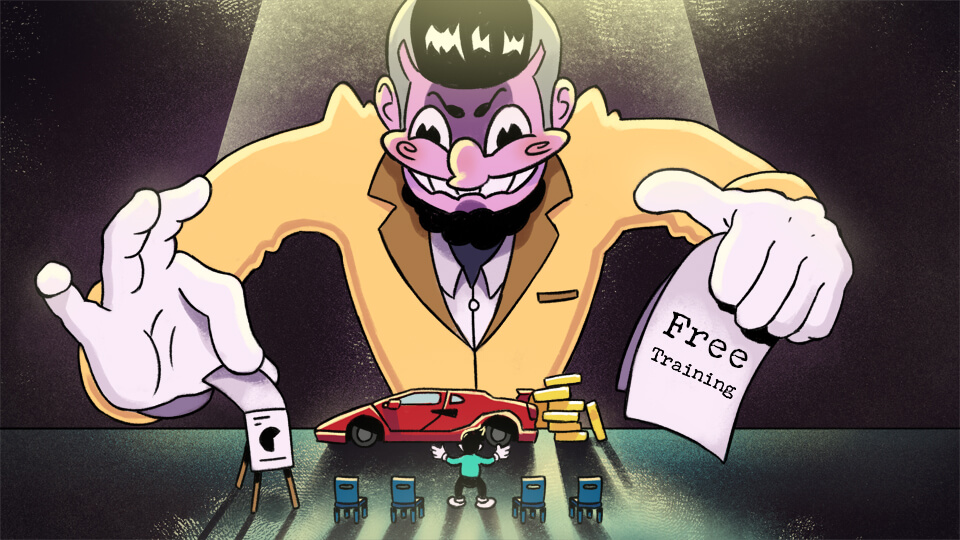Unlocking the Symbiotic Relationship Between Profitable Companies and Economic Prosperity: A Deep Dive into the Past, Present, and Future

Let’s get straight to the point—profitability isn’t just some corporate buzzword; it’s the lifeblood of our economy. No fluff, just facts. You see, a company isn’t a mere structure of bricks and mortar; it’s a dynamic entity, an engine of prosperity that drives economic growth, fuels innovation, and opens doors of opportunity for millions.
The Past: Monarchs, Communism, and Economic Stagnation
Before diving into the here and now, it’s worth taking a brief detour through history. You see, the concept of a ‘company’ as we know it today hasn’t always existed. Once upon a time, under kings and monarchs, the economy was a tightly controlled affair. Opportunities for free enterprise were limited and often subject to royal decrees and whims. Fast forward to the era of communism, and we see the disastrous results of governments seizing control of companies—economic stagnation, lack of innovation, and a demoralized workforce. These historical examples aren’t just stories; they’re cautionary tales that underline the importance of a free and profitable corporate sector.
The Cycle of Profitability: It’s Bigger Than You Think
Alright, let’s talk numbers because I love data and you should too. Profitability sets off what I like to call a “virtuous cycle.” A profitable company reinvests in its business, hires more people, pays better salaries, and—here’s the kicker—even pays more in taxes. That’s more money for schools, hospitals, and yes, even roads. This is not just theory; it’s Economics 101.
Stakeholders: The Unsung Beneficiaries
When a company turns a profit, the ripple effect is monumental. Employees don’t just have jobs; they have careers. Investors don’t just have portfolios; they have nest eggs. And governments? They don’t just get another tax-paying entity; they get a partner in nation-building. It’s a win-win-win, so much so that it’d be foolish not to acknowledge it.
Today’s Reality: A Tale of Two Companies
Consider two giants—Apple and Tesla. Apple didn’t just give us shiny gadgets; it revolutionized the way we communicate, work, and even pay for things. Tesla isn’t just about electric cars; it’s about sustainable energy solutions for the future. These companies aren’t just profitable; they’re trailblazers, shaping the society we live in and setting the stage for what’s to come.
The Big Picture: It’s More Than Just GDP
You might think GDP is the be-all and end-all of economic success. Think again. Companies drive not just GDP but societal advancement. They are the reason we have cutting-edge healthcare, innovative educational tools, and yes, even the smartphone you’re probably reading this on.
Risks? Oh, They Exist
Let’s not sugarcoat it—when companies fail to turn a profit, we’re all in for a rough ride. Unemployment spikes, innovation stalls, and the economic train comes to a grinding halt. Just look at Venezuela; a cautionary tale of what happens when the government interferes excessively in the corporate sector.
Innovation and Strategy: The Twin Pillars of Profitability
Now, how do companies become profitable? Two words: innovation and strategy. Companies like Amazon didn’t become giants just by selling books. They innovated, diversified, and strategized their way to the top. And that’s the secret sauce right there—innovation for product development and strategy for market dominance.
Conclusion: Profitability is Non-Negotiable
In a nutshell, profitability isn’t a luxury; it’s a necessity. It’s what separates thriving societies from failing ones. It’s what turns ideas into innovations, possibilities into opportunities, and individuals into communities.
A Wake-Up Call: Your Role in This Economic Symphony
Here’s the deal: it’s time we all appreciate the titans of industry and the entrepreneurs who risk it all. Governments need to realize that their coffers are filled not by magic but by profitable companies. So, the next time you think about asking the government for help, maybe think about how you can help your company—or better yet, start one. Trust me, the ripple effect will be worth it.
We’re all in this together. We owe it to ourselves and to future generations to keep the wheels of profitability turning. So let’s roll up our sleeves, folks, because we’ve got work to do.

#Profitability #EconomicGrowth #Entrepreneurship #Innovation #CorporateStrategy #JobCreation #EconomicHistory #Stakeholders #RisksInBusiness #GovernmentAndBusiness #FreeMarket #GDP #MarketLeaders #SocietalImpact #InvestmentStrategy




